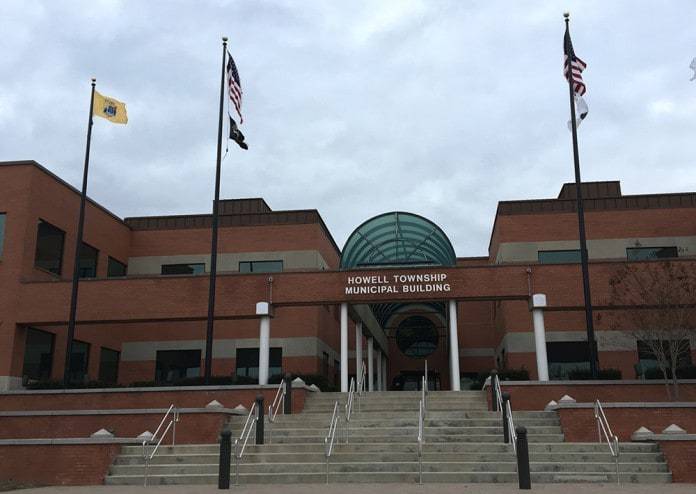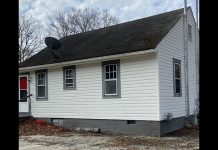
HOWELL – At a recent meeting, the Howell Council approved a resolution to negotiate a settlement agreement before the Monmouth County Superior Court to establish Howell’s fair share affordable housing obligation.
The resolution not only sets the township’s obligation at 895 affordable housing units, but it also provides the township time to come up with a compliant affordable housing plan and grants them immunity from builder’s remedy litigation.
Every town in New Jersey is required to set aside a certain number of homes that are considered “affordable.” This settlement would be the latest update in litigation, which arose out of the State Supreme Court’s Mount Laurel IV case.
The Mount Laurel cases stem back to 1975 with Mount Laurel I and Mount Laurel II (1983), which “declared that municipal land use regulations that prevent affordable housing opportunities for the poor are unconstitutional and ordered all New Jersey municipalities to plan, zone for, and take affirmative actions to provide realistic opportunities for their “fair share” of the region’s need for affordable housing for low and moderate-income people,” according to the Fair Share Housing Center.
“The Township filed a declaratory judgment action…seeking a judicial declaration as to the Township’s fair share obligation – i.e. the number of additional affordable housing units it is required by law to have in the Township…The Fair Share Housing Center, a public interest group that focuses on affordable housing, intervened in our case, as it did in every other case filed in the state,” said Joseph Clark, township attorney.
The Fair Share Housing Center (FSHC) was established in 1975, the same year as Mount Laurel I, and intervenes in affordable housing obligation cases, as an advocate for the Mount Laurel Doctrine and the rights of the poor against discriminatory or exclusionary housing practices, according to their website.
The township’s housing obligation was determined at 895 units, which was calculated from Judge Mary Jacobson of Mercer County’s “fair share methodology,” established earlier this year to “determine the state-wide affordable housing fair share obligation, and the Region 4 fair share obligation, which includes Mercer, Monmouth and Ocean Counties,” as stated in the resolution.
This is also known as the “Jacobson Decision.”
“The 895 units calculated under Judge Jacobson’s methodology is approximately 400 units fewer than what Fair Share’s expert calculated for Howell Township,” said Clark. “Because Howell has been proactive over the years in adding affordable housing units, many of the 895 have either already been built or are part of currently approved projects, which lowers the number of units remaining to be built.”
This 895 units is applied to Howell’s third round affordable housing obligation period which extends from 1999-2025.
Why Settle?
The settlement agreement is not only setting the township’s obligation at an amount lower than expected by Fair Share, but it is likely preventing the township and its taxpayers from costly trial, officials said.
Clark said that if the town went to trial, it would do so on its own due to county stipulations. It would then require lengthy expert testimony and attorney expenses. “A trial would most likely take as long as the first trial in Mercer County – somewhere around 40 days,” he added.
“In the end, it is highly unlikely that a municipality could convince a trial court to abandon the methodology established by Judge Jacobson…and create its own,” said Clark. “Instead, it is probable that the (trial) judge would use the methodology created by Judge Jacobson, which means that the best the township could hope for, after having spent hundreds of thousands of taxpayer dollars on the trial, might be a small reduction in the number of required affordable housing units.”
And if the township were to lose, it might call for more affordable housing. Clark noted that this settlement gives the Township greater control over many aspects of the affordable housing plans, while avoiding litigation costs, which are also a burden on the taxpayer.
While the resolution was approved unanimously by the council, the settlement agreement still awaits finalization and approval. Clark also stated that any settlement or plan for affordable housing must be presented and approved in Superior Court.
The township currently has 12 projects, or 271 total affordable housing units, proposed and approved towards third round obligations that are built or still viable, according to township records.
This amount, 271 units, represents actual units without any bonus credits being factored in, according to Clark.
“Bonus credits are credits given to municipalities when certain types of units (for example age restricted units) are constructed as part of an affordable housing project. This means that instead of counting as just one unit, they may count as 1.33 units or even two units,” he explained.
With bonus credits, Howell would be able to reach their obligation with compliance without building a full 895 units, as some count for more than just one credit.
Howell currently has 568 out of 895 units, leaving it with 327 more units to construct before 2025, said Clark.







